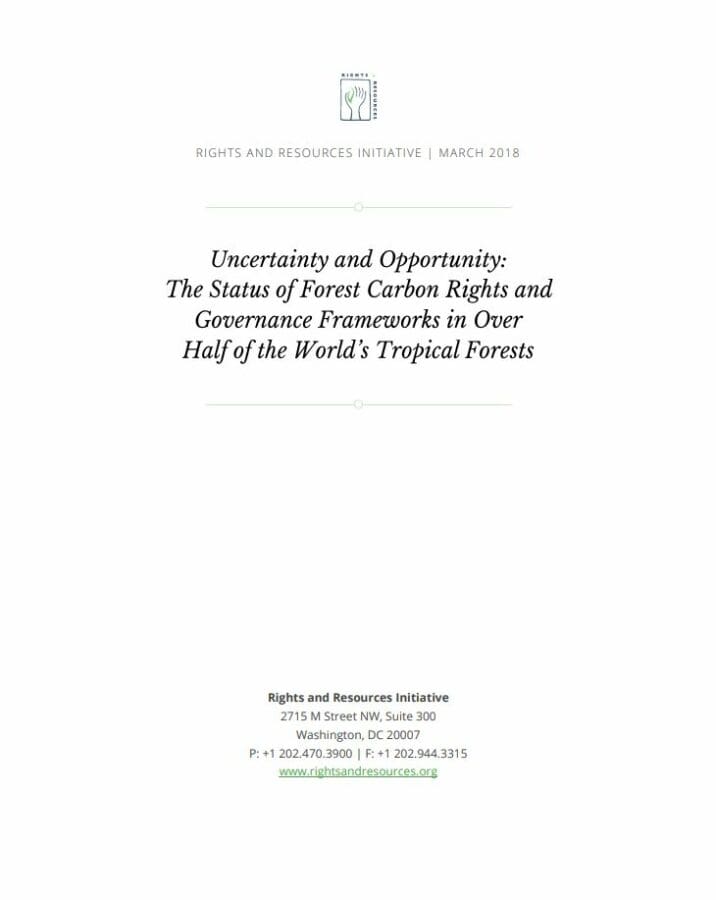Date: March 14, 2018
Most of the world’s remaining tropical forests lie in areas that are customarily managed and/or legally owned by Indigenous Peoples and local communities. In the context of climate change and global efforts to protect and enhance the capacity of forests to capture and store greenhouse gas emissions, the question of who owns the trees and the carbon stored therein is paramount. Clarifying this question is crucial, both for the future of the planet, and for up to 1.7 billion people worldwide who rely on forests for their livelihoods.
This brief presents a review of the nominal progress made in the national-level laws and regulations that govern the carbon trade and define the rights of parties —across a sample of 24 countries in Africa, Asia and Latin America. These countries collectively hold more than 50 percent of global tropical and subtropical forests. This brief also examines the design and establishment of safeguard mechanisms concerning benefit sharing, providing redress and resolution to disputes related to carbon-based schemes, and the operationalization of carbon registries for each of these countries.
https://doi.org/10.53892/FNPN5361

